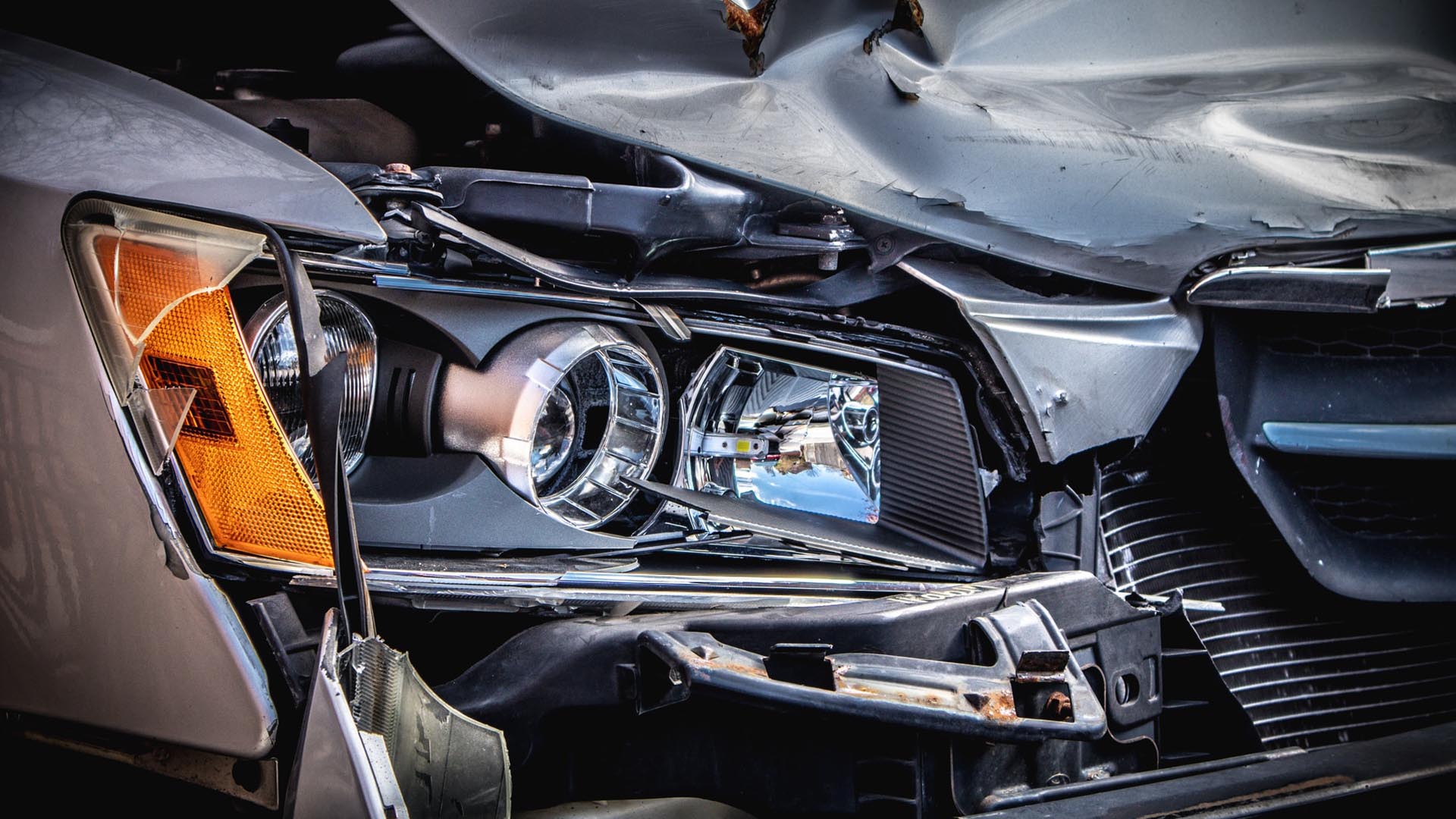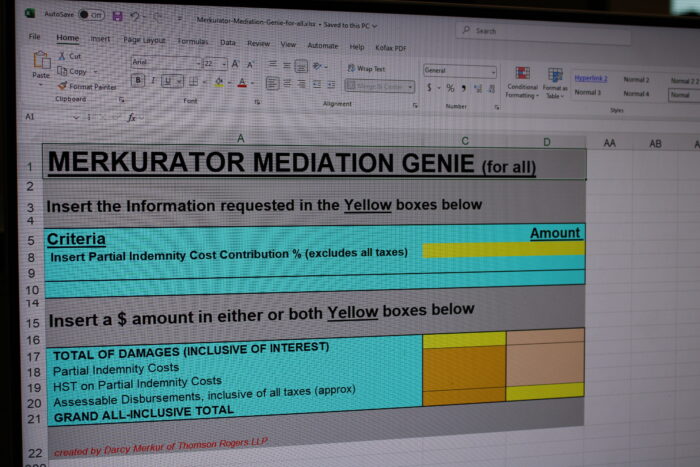Motor Vehicle Accident Fatalities: What Rights Do Family Members Have?
Author(s): Darcy R. Merkur, Lucy G. Jackson
October 14, 2020

There have been a concerning number of motor vehicle fatalities in Ontario recently.
The number of pedestrians and motorists who have been killed in motor vehicle accidents in Ontario has increased gradually over the years. In 2019, 543 persons (drivers, passengers and pedestrians) were tragically killed in a motor vehicle accident in Ontario.
Family members of those fatality victims have rights and they should be aware of those rights (outlined below).
No-Fault Accident Benefit Rights in Fatalities
Regardless of whether the deceased motorist/pedestrian was at-fault for the accident, the family of the deceased victim will qualify for various no-fault benefits paid for by the deceased’s auto insurance company (or by the auto insurance company of the other vehicle involved if the family does not have their own auto insurance policy). These no-fault (or accident) benefits include:
- funeral expenses (to a maximum of only $6,000), and
- death benefits payable to certain family members.
The death benefits vary to some extent depending on the number of claimants, but typically $25,000 is paid to the deceased victim’s spouse and $10,000 is awarded to each of the deceased victim’s children or dependents (a dependent is defined as an individual who is dependent on the deceased person for financial support or care). Where there is no spouse, the $25,000 is also paid to the dependents (to be divided equally amongst them), in addition to the $10,000 received by each dependent.
If the deceased victim has a former spouse and is obligated to provide spousal support (i.e. under a domestic contract or court order), then the former spouse will receive $10,000.
For a parent who tragically loses a (dependent) child in a motor vehicle accident, the parent is eligible to receive $10,000 in death benefits (to be divided equally if there is more than one person for whom the deceased was dependent on).
In addition, family members who struggle emotionally and psychologically with the loss of a loved one can make their own accident benefit claim on the basis that the have sustained a ‘disability’ as a result of the accident and loss. That claim may allow for counselling at an auto insurer’s expense and may even pay income replacement benefits if the family member is unable to work as a result of their disability. A helpful brochure to explain those claims and how to advance them can be found here.
Fatality Tort Claims
If you have lost a loved one in a motor vehicle accident and the deceased victim is not fully at fault for the accident, then a lawsuit (called a ‘tort’ claim) can be commenced on behalf of the immediate family members of the deceased.
Claims by immediate family members include claims by the deceased’s children, parents, siblings, grandchildren and grandparents. The deceased’s spouse, including common law spouse, can also make a claim.
In these types of lawsuits, the family members can each sue for their loss of care, guidance and companionship under the Family Law Act of Ontario, plus any pecuniary (financial) losses, such as loss of income due to taking bereavement time and any out-of-pocket expenses incurred as a result of the death of their loved one (for example: additional funeral expenses and/or travel expenses for visiting the deceased during treatment) or incurred for the benefit of the deceased victim.
While claims by family members are often subject to a significant statutory deductible (a hefty amount kept by the insurance company as a legal deterrent to such lawsuits) the law was changed many years ago to eliminate the deductible in fatality situations. This means that family members can sue at-fault drivers for the loss of their loved one and they are not required to pay any amounts towards these problematic statutory deductibles.
The saddest part of dealing with fatality claims is the fact that historically our Ontario courts have not provided significant compensation to family members for their loss of care, guidance and companionship. For example, the high water mark of damages awarded to a family member is approximately $142,500 (for the parent’s loss of their 14 year old child, adjusted for inflation: see To et al v Toronto Board of Education et al, 150 OAC 54 and Fiddler v Chiavetti, 2010 ONCA 210).
Even though the courts have limited the amounts awarded for loss of care, guidance and companionship to family members, there are occasions where juries have awarded damage awards in excess of that amount. For example, in a recent 2019 Ontario Superior Court decision, Moore et al v 7595611 Canada Corp. et al, the jury awarded $250,000 to each of the deceased victim’s parents for their loss of care, guidance and companionship after their 24 year old daughter tragically died in a fire (though note this jury award, like other high awards, may be adjusted on appeal).
It can be very difficult to understand how a life and the loss of a life can be quantified in this way, but it is an unfortunate aspect of our legal system. Our courts are limited to only awarding monetary compensation in these types of claims and the courts have set what feels like a very low amount for the maximum award available.
Although the awards for loss of care, guidance and companionship are typically restricted by the courts, damage awards for the deceased’s family’s pecuniary (financial) losses are not restricted. As well as claiming for a loss of income due to taking bereavement time and any out-of-pocket expenses, dependents, including spouses or children, or even elderly parents, can claim for the loss of earnings and the value of household services that they would have received from their deceased loved one in the future, if not for the untimely death. These family members can also claim for the loss of any benefits the deceased victim might have earned or had access to, such as pension or group health benefits.
Moreover, if family members are suffering psychologically or from mental distress, they can potentially claim damages for those psychological impacts and the cost associated with any treatment that they require as a result.
Some insurance companies are sympathetic in fatality situations and resolve these claims efficiently. Other insurers force the family to pursue the lawsuit, which involves the family members participating in Examinations for Discovery (extensive questioning on their relationship with their deceased loved one and their losses). Pursuing a lawsuit in a fatality situation can be quite upsetting for family members, as they are forced to rehash the extent of their losses when they are trying desperately to grieve and move forward with their life as best as possible.
Of course, liability for the accident giving rise to the fatality will always be an important aspect of any claim and the evidence from the deceased is obviously not available. That said, the police commonly do full reconstruction reports in cases involving a fatality such that the information about the accident is usually well investigated and understood (albeit the police records are only available after any Highway Traffic Act or criminal charges are resolved).
A trauma lawyer assisting a family in a fatality situation should do whatever they can to avoid the upsetting nature of the Examination for Discovery process, but despite the efforts of the family’s trauma lawyer, many fatality lawsuits end up proceeding through that stage of the litigation process.
Conclusion
If you have lost a loved one in a motor vehicle accident, then you absolutely need a trauma lawyer to assist you in advancing your family’s claims. While the compensation available in the lawsuit is constrained by Ontario jurisprudence, compensation should be paid by the at-fault driver’s insurance company.
Where the fatality is caused by the conduct of a criminally reckless defendant, such as someone convicted of drinking and driving, then your trauma lawyer can make claims and insist on payment from the reckless defendant, though, practically speaking, the reckless defendant is often financially unable to do so.
Feel free to call a trauma lawyer at Thomson Rogers for a free consultation if you have any questions about your rights.
Darcy Merkur is a highly regarded Ontario trauma lawyer helping accident victims such as pedestrians, cyclists and motorists, who have sustained catastrophic injuries.
Darcy is the first lawyer in Canada to be qualified as a Certified Brain Injury Specialist by the Brain Injury Association of America. In addition, Darcy has been recognized as a Certified Specialist in Civil Litigation by the Law Society of Ontario, is listed in peer-reviewed publications – Lexpert® and The Best Lawyers™ in Canada, is ranked AV pre-eminent in Martindale-Hubbell ® and is a partner at Thomson Rogers, one of Canada’s Top 10 Personal Injury Law Firms as selected by Canadian Lawyer Magazine.
Darcy can be reached at 416-868-3176 or by EMAIL.
Lucy Jackson is an associate personal injury lawyer at Thomson Rogers. Lucy can be reached at 416-868-3154 or by EMAIL.
Share this





